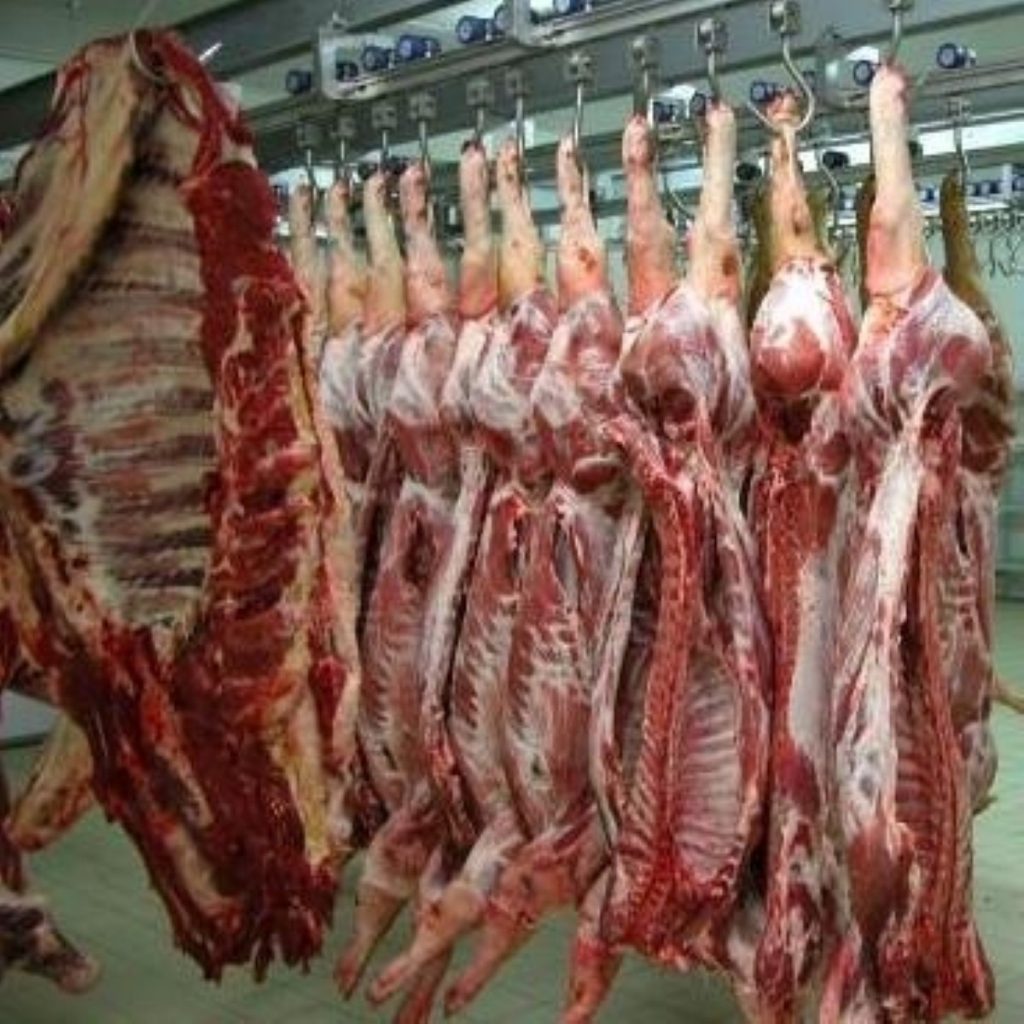Animal rights outcry at Euro slaughter decision
By Ian Dunt
Animal rights groups have reacted with outrage at a European Union ruling earlier this week protecting Jewish and Muslim methods of slaughtering animals.
Jews practise a form of ritual slaughter called shechita, while Muslims practise dhabiha. Neither will have to involve stunning the animal before slaughter under the ruling, a factor many animal rights advocates consider objectionable.
The new EU rules require all slaughter techniques to make sure animals do not suffer “any avoidable distress or pain”, but they make an explicit exception for “cultural traditions and religious rites”.


Animal rights are less important than human rights
It means there will now be a requirement for kosher and halal food to be traded and sold freely in every EU state.
Peta US spokesman Philip Schein told politics.co.uk: “When these laws were formulated thousands of years ago, they were intended to minimise pain to animals.
“However, with today’s high-speed mass-production, ritual slaughter has often become a mockery of its original intent. Animals slaughtered according to halal and kosher regulations come from the same unhygienic, miserable factory farms as animals killed in standard slaughterhouses,” he continued.
“And without prior stunning, animals which are killed according to halal and kosher methods have their throats cut while fully conscious and slowly bleed to death.”
But Dr Moshe Kantor, president of the European Jewish Congress, said the method of slaughter was a religious right.
“This regulation protects the fundamental rights of Europe’s religious minorities,” he said.
Conference of European Rabbis executive director Aba Dunner added: “The regulation specifically makes provision for the killing of animals for food by religious communities to be exempted from the requirement for pre-stunning, and it contains no discriminatory labelling requirements for meat slaughtered using the shechita method nor for post-cut stunning to be enforced.”
“Furthermore, no member state will be able to prevent meat slaughtered according to the Jewish religious method being traded in its territory.”
Fhuja Shafi, chair of the food standards committee at the Muslim Council of Britain (MCB) said: “This is a human rights issue in terms of our ability to practise our religion. It’s a very humane method of slaughter. The incision with a very sharp knife produces a fast death and we see no problem with it.”
But animal rights activists were joined by secular campaigners, who branded the move lopsided.
Stephen Evans of the National Secular Society (NSS) said: “This is further evidence of the grip that religion increasingly holds over our decision makers.
“Here we have a non-negotiable religious opt-out for a piece of legislation aimed at avoiding unnecessary suffering. The ruling is basically saying that it’s okay to cause animals to suffer, as long as you’re religiously motivated.”
The decision comes four years after the British government rejected a recommendation by the Farm Animal Welfare Council (FAWC) to ban the practice of slaughter without pre-stunning.
Animal rights groups claim the techniques can cause extraordinary suffering.
“Peta US’ undercover investigations into religious slaughterhouses have exposed that animals often remain conscious for minutes after the ritual slaughter cut and that these animals are often subjected to excruciating dressing procedures while still fully sensible to pain,” Mr Schein said.
“There is a consensus among scientists and industry experts that stunning, when done accurately and with proper head restraints, is the most humane option and that this method can be made fully consistent with kosher and halal laws and principles.”
In a last ditch attempt to stop this legislation being passed, the NSS requested a meeting with Hilary Benn, environment secretary, but the group said he rejected the offer.
In a statement, the department said it would not change its “long-standing policy of religious tolerance” by ending the opt-out.
“While the government would prefer to see all animals stunned before slaughter, we will continue to ensure that required standards of animal welfare are effectively monitored and enforced in all slaughterhouses,” the statement read.
The ruling, which took place last Monday, also contains measures welcomed by animal rights activists.
Slaughterhouses will also have to appoint a specific individual with responsibility for animal welfare and ensure all staff are properly trained and certified.
The efficiency of stunning techniques will be regularly monitored, killing will only be allowed when carried out by properly trained and certified personnels, and animal welfare will be taken into account in the design of slaughterhouses.
But the use of certain controversial stunning techniques, such as carbon dioxide for pigs and poultry, will be allowed to continue, despite new limitations.
“We have a duty to take care of animals. Their welfare is crucial, not only for ethical reasons but also to ensure animal health and the quality of food,” EU Health Commissioner Androulla Vassiliou said in a statement.
Every year, nearly 360 million pigs, sheep, goats and cattle and several billion turkeys and chickens are killed in the EU for their meat.









